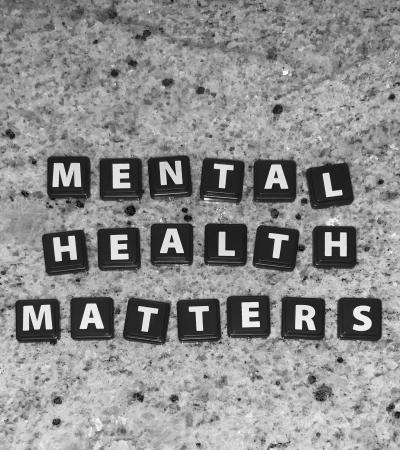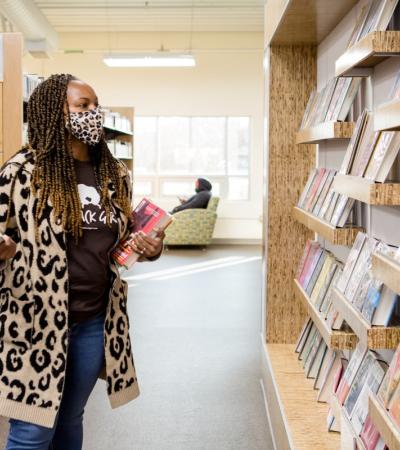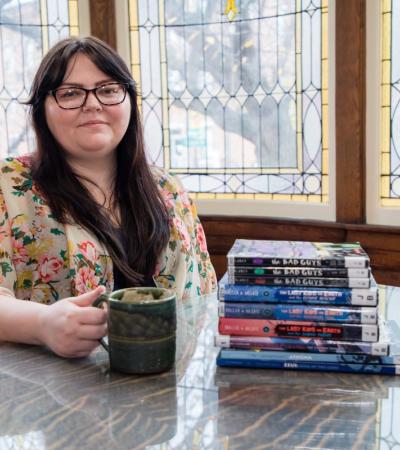
While experiencing months of isolation due to COVID-19, conversations about the importance of mental health have come to the forefront.
Although these conversations have helped to reduce much of the stigma around talking about topics like depression and anxiety, many people still have a hard time admitting that they need help. It can also be difficult for some people to find the mental health resources they need. Recognizing this need, some libraries have stepped in to help people access the resources that can help.
One such library is Hewitt Public Library based in Hewitt, Texas. When they recognized that people in their community were struggling, library director Waynette Ditto and librarian Caitlin Miller began thinking about ways that they could help. “Mental health has always been one of my favorite platforms,” said Miller. “It’s something I'm passionate about, and I am always on a quest to destigmatize the conversation.” Many are struggling with mental health during the pandemic and Miller noticed that not a lot of people knew how to articulate that. The library saw an opportunity to find a way to help reach out to the community.
With funding from the American Library Association’s Libraries Transforming Communities: Focus on Small and Rural Libraries initiative, Ditto and Miller sought to start a community dialogue about mental health and connect their patrons to available professional resources. “It was a way for us to say, ‘Hey, we're here. We're listening.’ We have resources and technology to be able to connect people together,” Ditto said.
Compassion, empathy and self-care kits
Hewitt serves around 22,000 people in the Central Texas area. It is part of the Family Place Libraries network, an initiative through which libraries work with early childhood education professionals and help to connect parents to community resources. Like many libraries, Hewitt prioritizes community engagement and outreach. Over the years, the library has forged relationships with different community organizations. Library leadership relied on these connections to provide patrons with mental health resources.
Specifically, they invited local professionals to meet with community members virtually for conversations around mental health issues. The library also provided 150 self-care kits that patrons could pick up with no questions asked. These kits included a list of professional mental health resources as well as materials such as journals and coloring books. “The things we need [for effective community engagement] are compassion and empathy. The rest we can learn,” Miller said.
One of the conversations that the library hosted focused on mental health for young adults with disabilities and their caregivers. Ultimately, the goal is to develop a program tailored to support their needs. "We have young adults with disabilities that use our library,” explained Ditto. One staff member connected with a lot of these families and offered a listening ear to many of the parents. “It wasn't that we were providing a service … just being available to listen.”
Because of these pre-existing relationships, library staff were comfortable reaching out to families and asking them to join in conversations and invite others to participate. People were encouraged to share as much or as little as they wanted to, and library staff worked hard to create an inclusive and judgment-free environment for the conversations to take place. The library also formed connections with local city leadership and mental health professionals that they could ask for support and information about available resources.
Getting the support of city leadership was important, according to Ditto. “[W]henever I first started this and mentioned it … they just were really unsure of what this looked like. And why would a public library be this involved,” she said. “I've really had to be very honest about what my intentions were with this program … [and] that I have a well-prepared, trained staff to be able to handle all of that.”
Knology is a nonprofit research organization that produces practical social science for a better world. The organization pursues this goal to help professionals in a variety of sectors build inclusive, informed, and cooperative societies that can thrive together with the natural systems on which we all depend. As a transdisciplinary collective of over 30 social scientists, writers and educators, the organization's work process is built on equity, transparency and deliberation.



